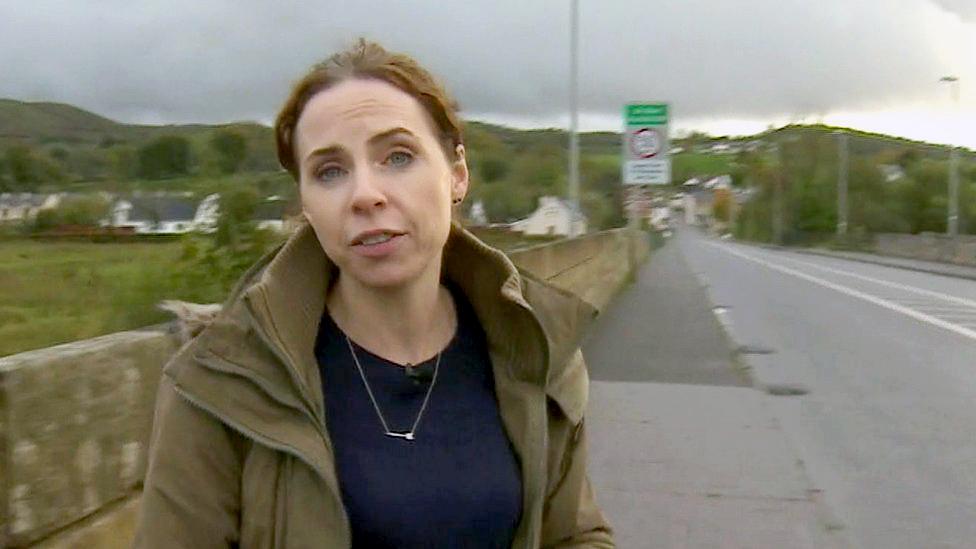Barnier warns of no Brexit deal without border backstop
- Published
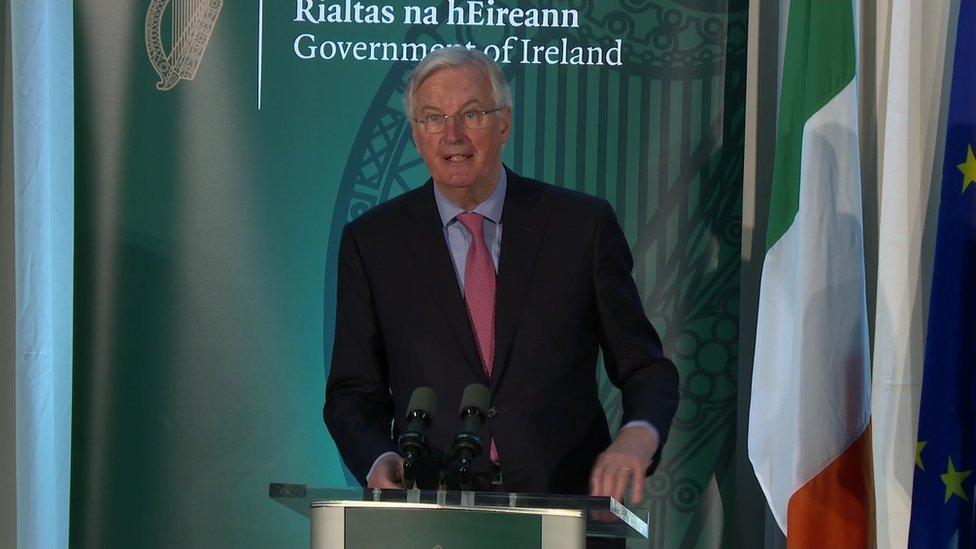
Michel Barnier said the Republic of Ireland has the support of all EU member states
There can be no Brexit withdrawal agreement without a "backstop" option for the Irish border, the EU's chief Brexit negotiator has said.
Michel Barnier said the Republic of Ireland has the full support of all EU member states and all EU institutions.
The backstop would involve NI, or the UK as a whole, aligning with the EU rules required to support North-South cooperation and an all-island economy.
Mr Barnier was speaking at the start of a two-day visit to Ireland.
The UK has accepted the need for a backstop to be written into the Brexit withdrawal agreement.
But it has not agreed what EU rules it should cover.
At the beginning of the all-island Brexit forum in Dundalk, County Louth, Mr Barnier said he knows that the so-called backstop has been the subject of "heated discussions in the UK".
"To be clear: without a backstop, there can be no withdrawal agreement," said Mr Barnier. "This is an EU issue, not only an Irish issue."

Analysis: Jayne McCormack, BBC News NI political reporter, in Dundalk
It almost became Brexit bingo - as journalists lost count of how many times Mr Barnier referenced the "backstop" option for the Irish border.
The backstop would mean that in the absence of any other solution, Northern Ireland, or the UK as a whole, would align with EU rules required to support north-south cooperation and an all-island economy.
While in principle the UK signed up to this option, precise detail on it has yet to appear.
Mr Barnier's three points were:
The UK government has agreed to a backstop and knows that without it there is no withdrawal agreement
The EU is not using the backstop as a negotiating tactic
The backstop is necessary to protect the integrity of the customs union and single market
In brief - the backstop was agreed - so let's get on with it.

Mr Barnier also denied claims from Arlene Foster, the leader of the Democratic Unionist Party (DUP), that he has been "aggressive" towards Northern Ireland unionists in the Brexit talks.
The DUP leader said earlier that Mr Barnier did not understand the dispute and was not an "honest broker".
In response, the EU's chief Brexit negotiator said he was not ready to engage in "polemics" with Mrs Foster.
Mr Barnier's visit comes amid rising tensions over the future UK-Ireland border.
He told a press conference in Dundalk at the beginning of the all-island Brexit forum that his "door is open" to Mrs Foster and the DUP.
He said he had not approached the negotiations in a "spirit of revenge".
DUP leader Arlene Foster: Brexit negotiations have 'become aggressive'
He added that he regretted the UK had voted to leave the EU, and said he was determined to work with the UK to find a solution to the Irish border issue.
The all-island Brexit forum is being hosted by the Taoiseach (Irish prime minister) Leo Varadkar and his deputy, Simon Coveney.
Broker or negotiator?
On Sunday, Mr Barnier said the UK was contradicting itself over its Irish border policy.
But Mrs Foster said she believes Mr Barnier does not understand the dispute and is "not an honest broker".
In return, he said that Mrs Foster needed to respect that his role was to negotiate on behalf of the EU and not to act as a mediator.
Meanwhile the Taoiseach again there needed to be "meaningful progress" on the border issue by the June EU summit.
Mr Varadkar said otherwise it would be difficult to get the withdrawal agreement in place by October.
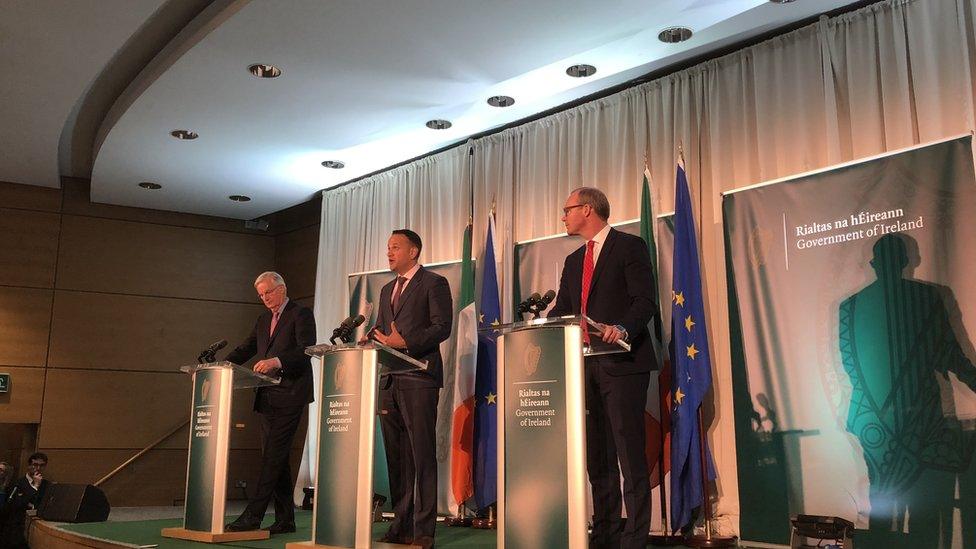
The two-day all-island Brexit forum began on Monday
In December, the UK and EU reached a political agreement in which the UK committed to protecting north-south cooperation on the island of Ireland.
It also guaranteed there would be no hard border, including physical infrastructure or related checks and controls.
However, the EU's proposed backstop solution to avoid a hard border - keeping Northern Ireland in the customs union after Brexit - continues to be at odds with what the UK government and the DUP say they would accept.
Mrs Foster told BBC political editor Laura Kuenssberg the DUP would not accept Northern Ireland being treated differently to the rest of the UK.
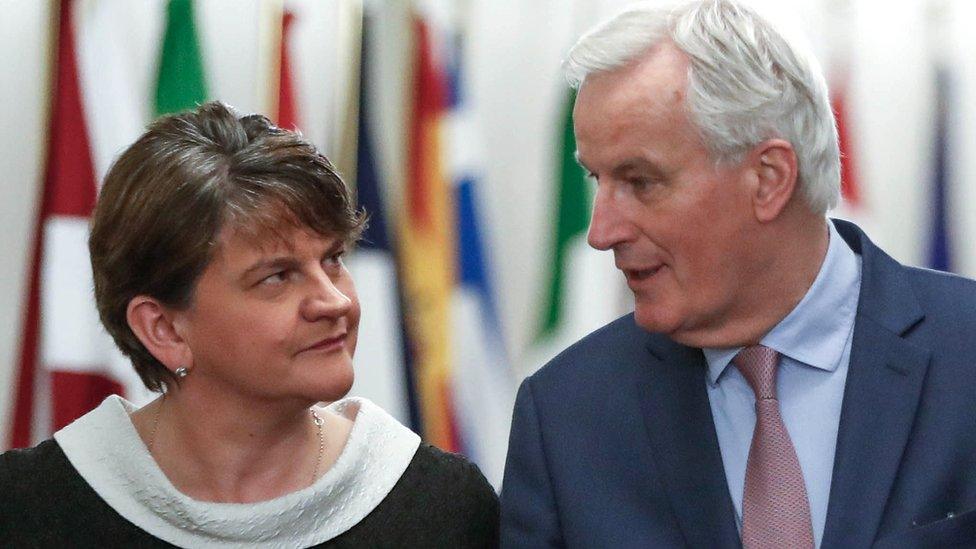
Arlene Foster has warned Michel Barnier the DUP will not accept Northern Ireland being treated differently to the rest of the UK
She said: "Michel Barnier's trying to present himself as someone who cares deeply about Northern Ireland and if that is the case he needs to hear the fact that we are part of the United Kingdom [and] will remain part of the United Kingdom constitutionally, politically and economically.
"Therefore his proposal of us being in an all-Ireland regulatory scenario with a border down the Irish Sea simply does not work.
"It does not work constitutionally, politically and it certainly does not work from an economic perspective."
The Irish border bridge where stakes are high
Mrs Foster added: "We've tried to get him to understand the unionist position for the people of Northern Ireland but he hasn't really responded and I'm disappointed about that.
"I don't think he does understand the wider unionist culture of Northern Ireland."
The DUP is also expressing annoyance that Mr Varadkar is visiting Northern Ireland later without giving notice.
Mr Barnier is due to meet Mr Varadkar on Monday and will also speak to business leaders on both sides of the Irish border during his trip.
- Published30 April 2018
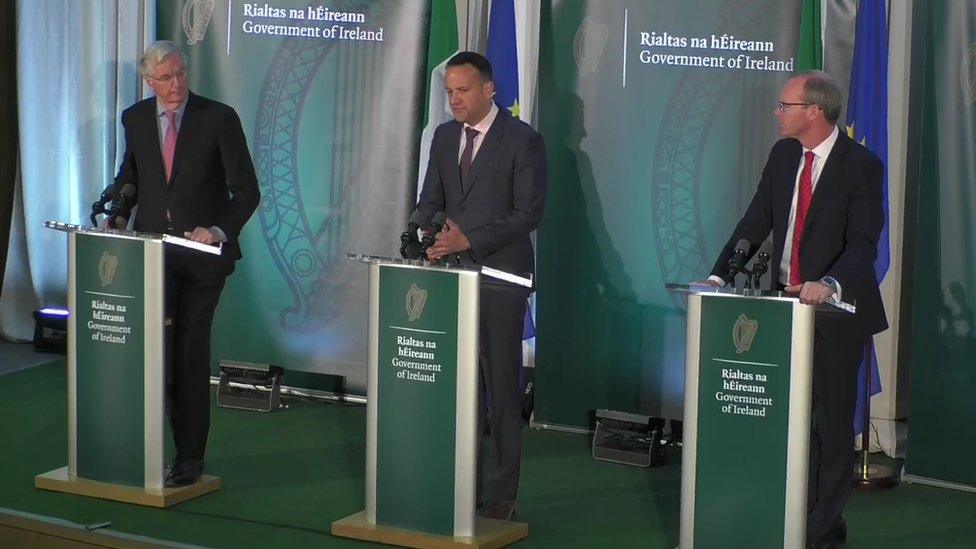
- Published30 April 2018
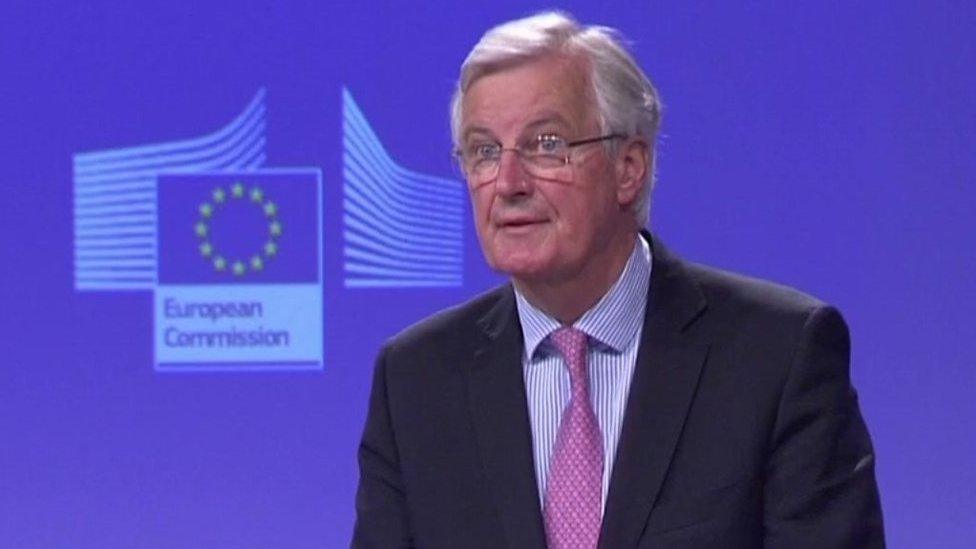
- Published30 April 2018
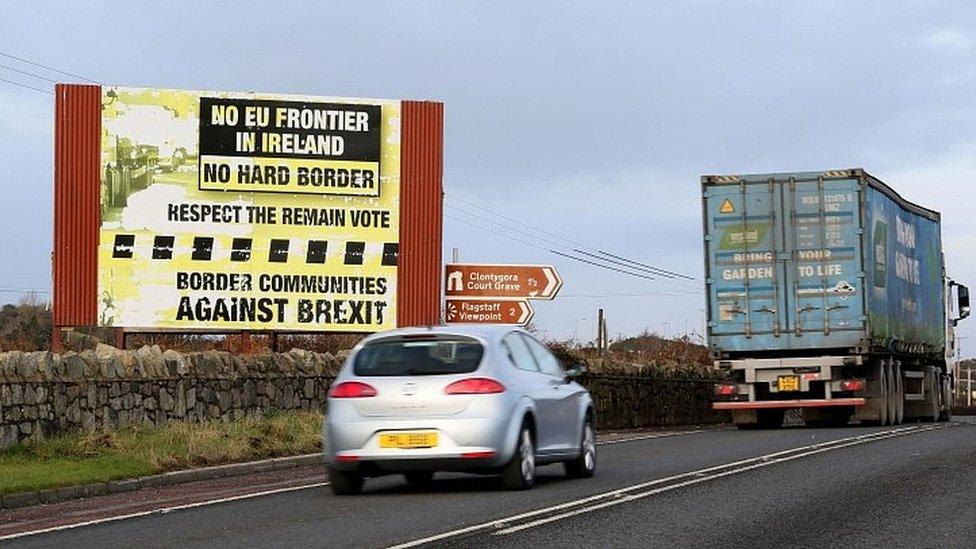
- Published29 April 2018

- Published30 November 2017
